In 2022 the OSU Department of Classics made two hires focused on the study of Race, Ethnicity, and Gender (Harriet Fertik and Christopher Parmenter). This, combined with our established strengths in the study of modern Greek and American ethnicities (Georgios Anagnostou) and Black Classicisms (Tom Hawkins) immediately positioned OSU Classics as a leader in these areas. This page includes updates on our community engagement, teaching, scholarship, and upcoming events we organize and sponsor.
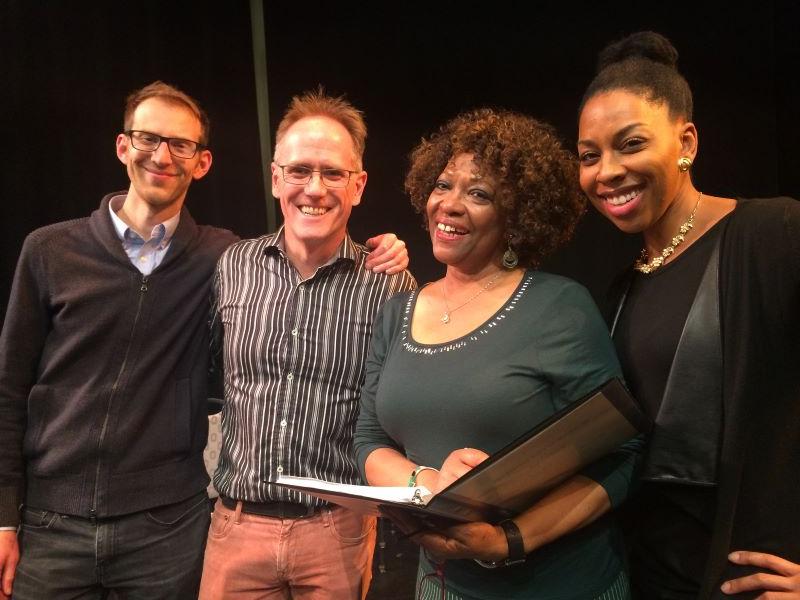

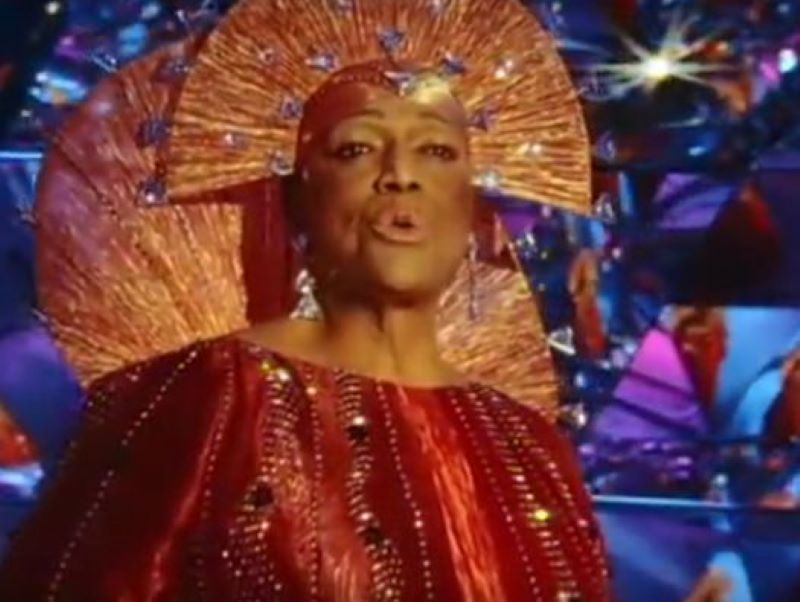
Spring 2024 Events
CREG New Work Social
Sunday April 14th at 1pm at Chris Parmenter’s residence.
Please contact Chris Parmenter (parmenter.14@osu.edu) if you are interested or have any questions.
We meet once each semester to discuss recent published work relevant to the study of race, ethnicity, and gender in antiquity and its reception (broadly defined) or to discuss work in progress with a guest speaker.
For this spring’s meeting, we will read and discuss our own Tom Hawkins’ Hacking Classical Forms in Haitian Literature (Routledge, 2023).
Autumn 2023 Events
CREG New Work Social
October 21st at 4 pm at Harriet Fertik's Residence
Please contact Harriet Fertik (fertik.1@osu.edu) if you are interested or have any questions.
This is the inaugural meeting of the CREG New Work Social. We will meet once each semester to discuss recent published work relevant to the study of race, ethnicity, and gender in antiquity and its reception (broadly defined) or to discuss work in progress with a guest speaker.
For this fall’s meeting, we will read and discuss Rosa Andújar’s “Phoenician Women: Deviant Thebans Out of Time” (in Queer Euripides, 2022) and Craig Williams’ “The Latin Language and Native Survivance in North America” (American Journal of Philology, 2022).
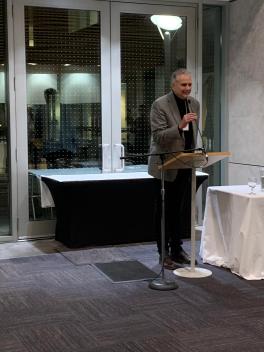
Georgios Anagnostou works on questions of whiteness in the United States with an emphasis on how European American groups negotiated their racializations in the country throughout the 20th century. The placement of early 20th c immigrants within US racial hierarchies and the debates surrounding post-1960s ethnic revival are the two historical moments organizing his approach to the topic. Publications in these areas include: Contours of White Ethnicity: Popular Ethnography and the Making of Usable Pasts in Greek America (2009, Ohio UP), “White Ethnicity: A Reappraisal” (Italian American Review, 2013), and Redirecting Ethnic Singularity: Italian Americans and Greek Americans in Conversation (co-edited. 2022, Fordham UP), which won the 2022 Modern Greek Studies Association Vassiliki Karagiannaki Best Edited Book Prize.
Harriet Fertik (she/her) is a scholar of ancient political thought and its receptions, especially in the work of Black American writers. She co-edited and contributed to Above the Veil: Revisiting the Classicism of W. E. B. Du Bois, a special issue of the International Journal of the Classical Tradition (2019). Recent and forthcoming publications include an essay on women and enslaved nurses in Tacitus' Dialogue on Orators, a study of "women's work" and political participation in Aristotle, W. E. B. Du Bois, and Anna Julia Cooper, and an essay on antiquity and anti-Blackness in Hannah Arendt's political thought. She is one of the founders of Eos, a society dedicated to Africana receptions of ancient Greece and Rome, and serves on its executive committee. She also co-organized the interdisciplinary conference "Mother's Milk: Breastfeeding from Metaphor to Practice."
Gaia Gianni is a social historian, and she explores the lives of children, women, and enslaved individuals in the Greco-Roman world. In her paper “Roosters, cockfighting and performing masculinity in Aristophanes’ plays” (Illinois Classical Journal, 2022), she analyzes how literary and visual references to roosters and their violent confrontations can be used a shorthand to signify the ideal masculine behavior in classical Athens. She also wrote a forthcoming paper (Historia, 2023) on the Italic goddess Feronia and the enslaved communities who worshipped her, focusing on why Feronia was believed to grant special protection to individuals in bondage.
Tom Hawkins (he/him/his) anticipates the publication in 2023 of Hacking Classical Forms in Haitian Literature, the first monograph to study the intersection of Haitian literature and material drawn from the ancient Greece, Rome and Egypt. He has published (or is preparing) articles and book chapters on such topics as Luis Alfaro’s Greco-Cholo tragedies, W.E.B. du Bois, the intersection of Haiti and Greco-Roman antiquity in early Black literature in the U.S., and Michael Yellowbird’s theory of neurodecolonization. He is a member of the advisory board for Eos.
Christopher Parmenter focuses on the intersections between ancient Greece and its many afterlives. Among other things, he has published on the impact of American desegregation on the study of Archaic Greece, as well as the use of models used by historians of the Transatlantic Slave Trade in piecing together ancient Greece's poorly-understood trade in enslaved persons. Right now, he is working on publishing the Latin writings of the English abolitionist Thomas Clarkson (1760-1846), as well as a study of the Black abolitionist Olaudah Equiano's (c. 1745-1797) classical readings.
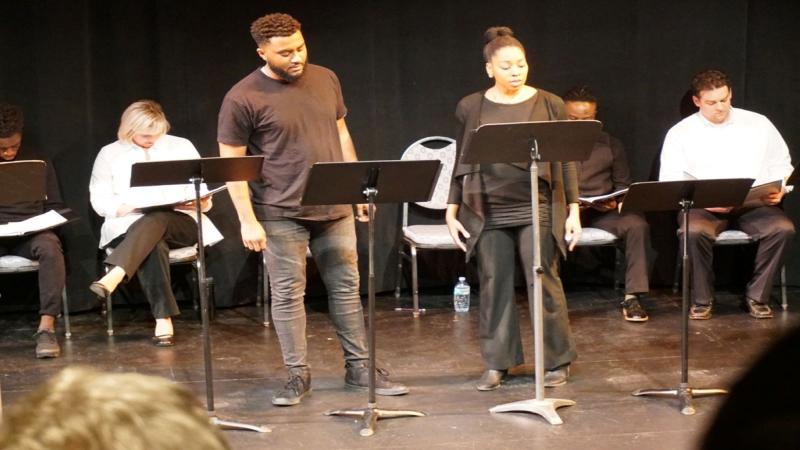
2022 "Building Supportive Communities for New Parents," a workshop with medical practitioners and alternative care providers, part of the conference "Mother’s Milk: Breastfeeding from Metaphor to Practice"
2022 Black Students in Classics, an affinity group for Black high school students studying any aspect of Classics, is founded with Tom Hawkins as the faculty advisor.
2022 Listen to the podcast of Tom Hawkins speaking with Shivaike Shah of Khameleon Productions about ‘Classics in Haiti’.
2020 With support of a Global Arts and Humanities Discovery Theme Seed Grant, Julia Nelson Hawkins co-organized a pair of webinars on the Humanities in the Pandemic, featuring speakers such Marc Bamuthi Joseph, Frank Snowden, and Jasmine Blanks Jones. The webinars gathered thought leaders on the emerging role of Black artists in public health and featured a demonstration of the way arts education has been an integral part of public health in Liberia during the Ebola and Covid outbreaks.
2020 Staged reading of Nobel Prize Winner Wole Soyinka’s The Bacchae of Euripides: A Communion Rite directed by Tom Dugdale (Theatre) and a lecture about Soyinka by Patrice Rankine, co-sponsored by Classics, African American and African Studies and Theatre
2018 Staged reading of Pulitzer Prize Winner Rita Dove’s Oedipal play The Darker Face of the Earth, directed by Tom Dugdale (Theatre) with Dove present for Q&A after the performance, co-sponsored by Classics, African American and African Studies and Theatre.
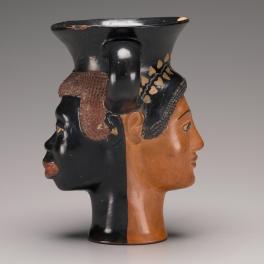
'Medicine in the Ancient World' (CLAS 2204) - This course includes modules on the theory of environmental determinism and the role it played in Greek medical writers’ formulation of their theories of race and gender.
'What is Race: Perspectives from Antiquity to the Present' (CLAS 3205) - This course introduces students to ancient Greek and Roman ideas of race, ethnicity, and gender, to the intersections between these ideas in the thought and lived experience of ancient peoples, to how these ideas were used, remade, and redeployed in early modernity and afterward, and to the key role of the ancient Mediterranean in modern racist ideologies.
'Classics and African American Political Thought' (CLAS 3210) - This course focuses on citizenship, leadership, and political change in ancient Greek and Roman and modern African American thought. We examine how African American thinkers have 1) interpreted, made use of, and revised the Classics in their own work and 2) contributed to and developed traditions of political inquiry and debate traced to ancient Greece and Rome.
'Sex and Gender in the Ancient World' (CLAS 3215) - An introductory survey of women, gender, and sexual relations in the ancient Mediterranean world, especially Greece and Rome.
'Black Cultures and Classical Education' (AFAMAST/CLAS 3956) - Cross listed between Classics and African American and African Studies, this course studies the intertwined histories of Blackness and the legacies of ancient Greece and Rome, beginning in the ancient Mediterranean world and moving through contemporary Black artists, such as Rita Dove, Toni Morrison, Inua Ellams, Kara Walker and Kehinde Wiley.
